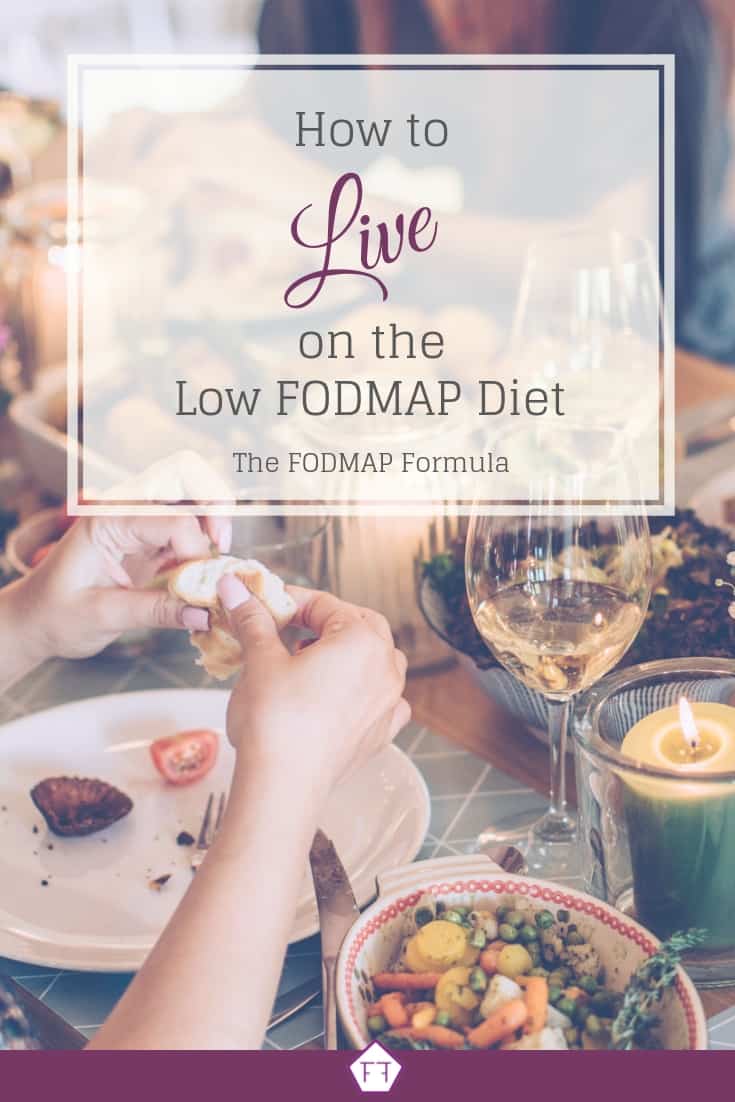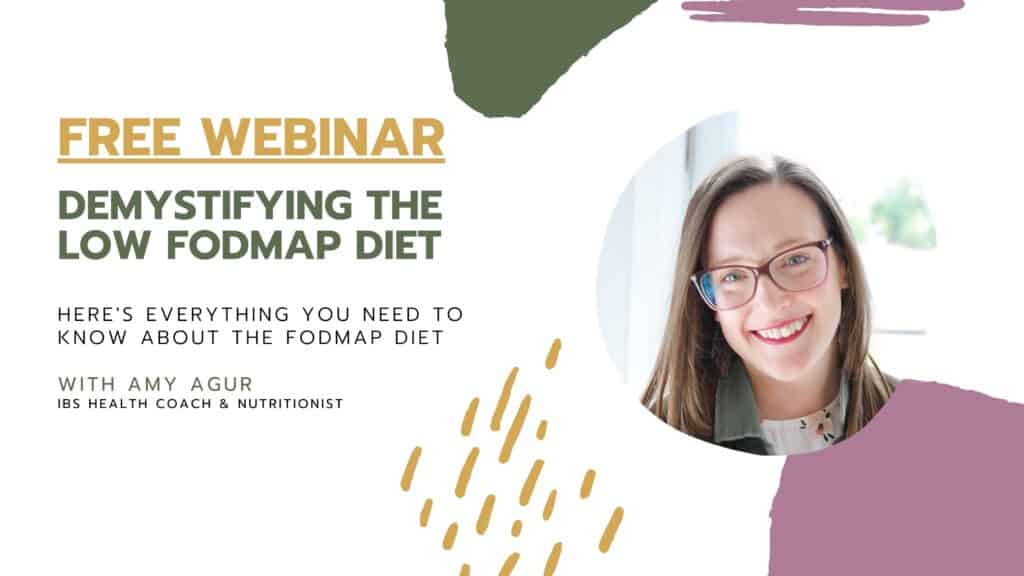When I was diagnosed with IBS, I was relieved my doctor agreed my symptoms weren’t in my head. But when he put me on the Low FODMAP Diet I panicked. I didn’t understand how the list of “safe” foods fit together to make a meal I recognized; and the more I thought about it, the more anxious I felt. I would have done anything to control my IBS symptoms. But, I couldn’t figure out how to live on the Low FODMAP Diet.

For the record, my frustration and anxiety weren’t about the food. Instead, I was worried about dates with my friends, birthdays, holidays, work dinners, book clubs, and community events. All of which are important parts of my life. All of which would now involve negotiations around food.
I tried my best to stay positive, but as a list of complications started spinning in my head, I was overwhelmed with grief.
It’s Actually a Big Deal
Starting the Low FODMAP Diet was a huge change for me. But, sometimes I worried I was being dramatic. At the end of the day, it’s just food. Right?
To get a different perspective, I contacted Natalie Riback, a psychotherapist practicing in Toronto, Ontario. I asked her if she thought the things you and I might lose during the Low FODMAP Diet are worth grieving. In her professional opinion, they are.
Riback agreed that the Low FODMAP Diet can create huge changes in a person’s life. She quickly pointed out, in many parts of the world, cultural traditions either feature or center around food. This means in addition to food-related challenges, diet restrictions can make it harder to participate in our communities.
I also asked Riback if she thought the way we deal with feelings of loss might impact our success in the program. Riback said:
We need to recognize that change is difficult and allow ourselves time to adjust to what is happening. If we give ourselves that space and time, we can remind ourselves that we have the capability to overcome the difficulties in front of us.
Riback added that having rules placed on us out of nowhere can be disorienting. She suggests giving ourselves some time to figure out where we stand before starting the program.
This may look like: learning more about the Low FODMAP Diet, finding and testing some recipes, and building a support network for days when you’re overwhelmed, fed up, or stuck.
Riback said that it’s important to understand how we feel about changes in our lives. She believes that acknowledging what’s happening to us and inside us helps integrate unexpected changes and intense reactions to our understanding of the world and ourselves. She stressed:
“Allowing ourselves to feel what we’re feeling, even if it’s extremely difficult, is crucial; as significant change creates significant emotions. When we hold something down that needs to come up, a pressure is built. That pressure shows itself in many ways such as: irritability, depression, anxiety, etc.”
As stress and anxiety, in particular, can trigger IBS symptoms, it is worthwhile to acknowledge and work through the reactions we have to the Low FODMAP Diet.

Ok, I’m Sad. How Does that Help Me?
I know what you’re thinking: “Ok, fine. I’m owning my feelings. How does accepting I feel depressed and anxious help me integrate the Low FODMAP Diet into my life?”
I’ll tell you. Your anxiety, sadness, and frustration will show you how the Low FODMAP Diet impacts your life as a whole. You can use this information to find specific things you worry about losing. Then do your best to take them back.
I love to cook, but when I started the low FODMAP program, my kitchen stayed empty for days. My proudest moment on this journey to date is when I stormed my kitchen armed with Franken-FODMAPed recipes. I gave myself permission to try, and fail, and learn and fail, and move on to fail at something else.
Your list will be different from mine, and you may not be able to take back everything you want. But, understanding what you are missing will help you make the adjustments you need to live on the Low FODMAP Diet.
Final Thoughts
In the end, the Low FODMAP Diet is one aspect of your life. But it will pop up in so many parts of who you are. This is why it is important to integrate low FODMAP food into your life, not just your diet.
You might also like one of these:
- How to Prepare for the Low FODMAP Diet Starting the Low FODMAP Diet doesn’t have to be scary! These practical tips will help you get your home and your self ready to rock the Low FODMAP Diet.
- How to cope with IBS Bloating Sometimes you can do everything right and things will still go wrong. I interviewed the experts for tips on coping with symptoms when our bodies feel out of our control.
- Common Myths About the Low FODMAP Diet Have you fallen prey to one of these 3 common myths? Check out this myth-busting article to make sure your low FODMAP program stays on the right track!
If you like this post, don’t forget to share it! Together we’ll get the low FODMAP diet down to a science!
